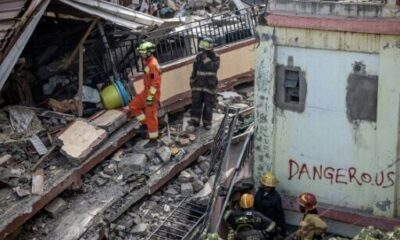News
17 children killed in Kenya school fire
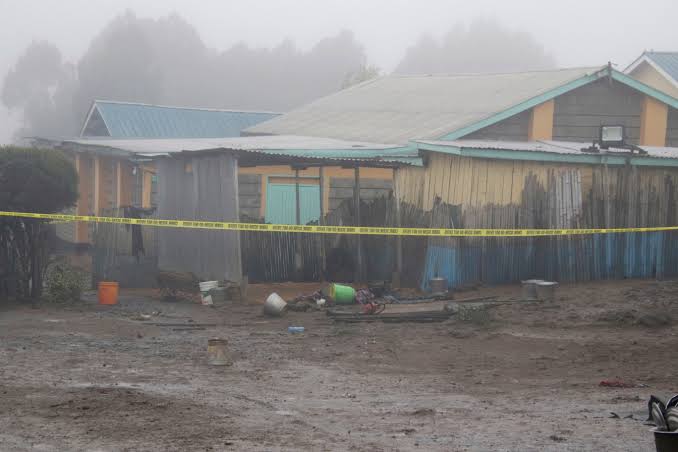
By Francesca Hangeior.
At least 17 children died after a fire ripped through their primary school dormitory overnight in central Kenya, police said Friday.
The blaze in Nyeri county’s Hillside Endarasha Academy broke out at around midnight, police said, engulfing rooms where the children were sleeping.
The primary school caters to some 800 pupils, aged between roughly five and 12.
“There are 17 fatalities from this incident and there are also others who were taken to hospital with serious injuries,” national police spokesperson Resila Onyango told journalists.
“The bodies recovered at the scene were burnt beyond recognition,” she said.
Police said the average age of the victims was around nine years old.
Several others were injured, Onyango said, 16 of them seriously, and had been rushed to a nearby hospital.
“More bodies are likely to be recovered once (the) scene is fully processed,” she said.
The cause of the fire remains unknown, she said, but an investigation had been launched.
President William Ruto expressed his condolences.
“Our thoughts are with the families of the children who have lost their lives in the fire tragedy,” he said in a post on X.
“This is devastating news.”
He said he had instructed officials to “thoroughly investigate this horrific incident”, and promised that those responsible will be “held to account”.
The school is located around 170 kilometres (100 miles) north of the capital Nairobi, in Nyeri county.
Local media showed relatives gathering outside the school building, anxiously waiting in the early morning mist for updates on their children.
Kenya’s Citizen TV showed images of what appeared to be the aftermath of the blaze, with blackened corrugated iron roofing that had collapsed in on itself.
The Kenyan Red Cross said it was on the ground assisting a multi-agency response team.
In a post on X, it said it was “providing psychosocial support services to the pupils, teachers and affected families”.
“Heartbreaking news from Kenya as a school fire has caused devastation. Our thoughts are with all affected,” said Jagan Chapagain, secretary general of the International Federation of Red Cross and Red Crescent Societies.
News
Kenneth Okonkwo Reveals Causes of PDP’s Decline Since 2015
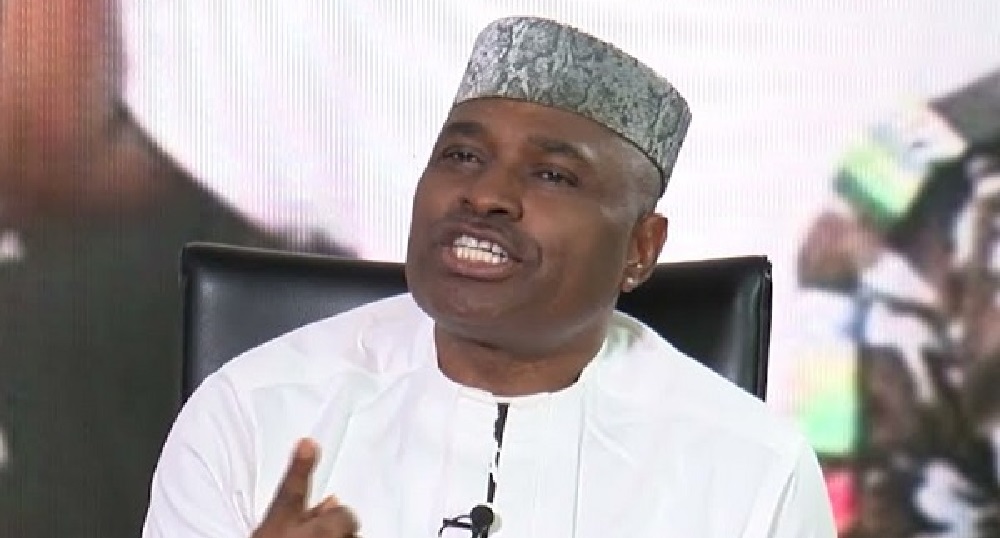
Veteran Nollywood actor and politician, Kenneth Okonkwo, has criticized the current state of the Peoples Democratic Party (PDP), describing it as being at its lowest point ever.
The former Labour Party stalwart attributed the party’s ongoing decline to events in 2015, when some PDP members broke away to form the New Peoples Democratic Party (nPDP) and teamed up with the All Progressives Congress (APC) to unseat their own party in the general elections.
According to Okonkwo, the failure of PDP leadership to take disciplinary action against those who betrayed former President Goodluck Jonathan laid the foundation for the party’s present woes.
In a statement shared via his (formerly Twitter) handle, the ex-presidential campaign spokesperson remarked:
“The lack of accountability for the 2015 rebellion institutionalized disloyalty in the PDP by 2023.”
He explained that in 2015, internal chaos rocked the PDP as seven governors and other top-ranking officials staged a dramatic walkout on President Jonathan during a rally, accusing the party of broken promises and betrayal. These defectors later aligned with the APC and successfully unseated their own party, leaving the PDP in opposition — where it remains today.
Okonkwo emphasized that the party’s refusal to sanction such acts of impunity has only encouraged further disunity, leading to its current political decline.
News
Former Plateau deputy governor is dead
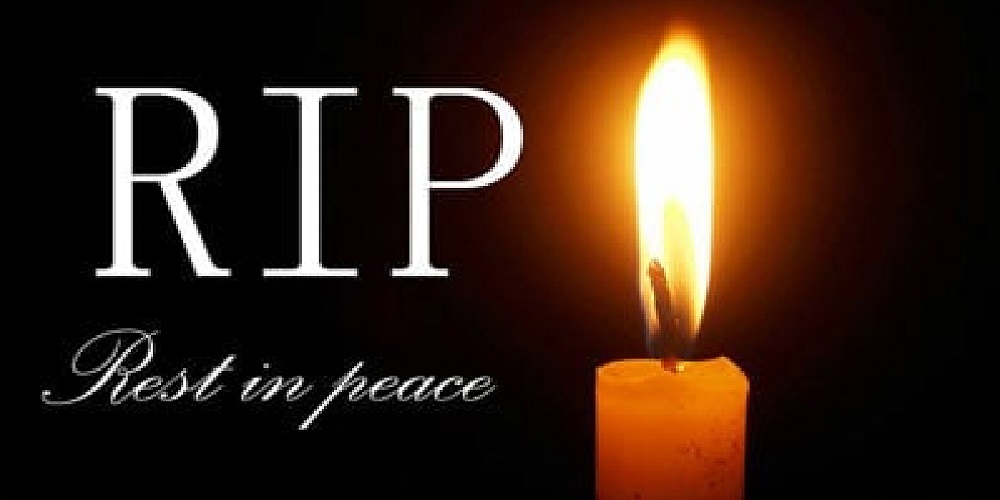
Former Plateau State Deputy Governor Professor Sonnie Gwanle Tyoden has died.
He passed away at the age of 74, though the cause of his death was not confirmed as at the time this report was filed.
Tyoden served as the deputy governor of Plateau State from 2015 to 2023, working under Governor Simon Lalong during the administration of the All Progressives Congress.
Before his time in government, he was the Vice Chancellor of the University of Jos, a role he held between June 2006 and June 2011.
Born on September 22, 1950, Tyoden was a professor of political science known for his work in academia and politics.
His contributions to the development of Plateau State were well-known, and his death has drawn attention across the state and beyond.
News
“I’m not thinking of a third term agenda -Trump
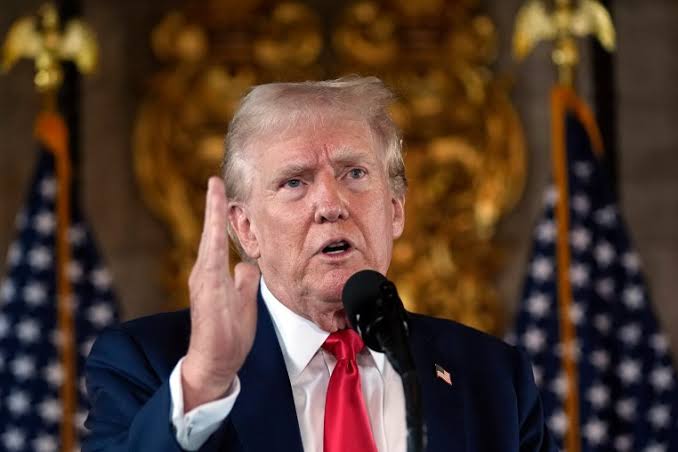
US President Donald Trump has denied that he is considering running for a third presidential term, a move which experts agree is banned under the US Constitution.
“I’ll be an eight-year president, I’ll be a two-term president. I always thought that was very important,” Trump told NBC’s Meet the Press with Kristen Welker in an interview that will air on Sunday.
Trump has previously said that he was “not joking” about wanting to serve a third, or even fourth, term as US president.
He later said his statements were meant to troll the “fake news media.”
His company, The Trump Organization, has been selling “Trump 2028” hats, fuelling armchair speculation that he may seek to remain in office after his second term ends in January 2029.
In the interview, recorded from his residence in Florida, Trump said that he has had many “requests” from people asking that he consider seeking to remain in office.
“So many people want me to do it,” Trump said, just days after celebrating his first 100 days of his second term.
“It’s something that, to the best of my knowledge, you’re not allowed to do. I don’t know if that’s constitutional that they’re not allowing you to do it or anything else,” Trump said.
He added that “there are many people selling the 2028 hat.”
“But this is not something I’m looking to do,” he said, going on to list several Republicans who could take his place, including Vice-President JD Vance and Secretary of State Marco Rubio.
“I think four years is plenty of time to do something really spectacular,” he added.
The Constitution’s 22nd Amendment says that “no person shall be elected to the office of the President more than twice.”
Changing the constitution would require two-thirds approval from both the Senate and the House of Representatives, as well as approval from three-quarters of the country’s state-level governments.
However, some Trump supporters say there is a loophole in the constitution, which has been untested in court.
Asked by NBC whether anyone has approached him with these theories, Trump deflected, answering that “in a capacity of being a big supporter, many people have said different things.”
During the interview, Trump also rejected criticism of his handling of the economy.
“Look, yeah. Everything’s OK,” he said after his tariff plan roiled international economies, leading the US economy to shrink for the first time since 2022.
“I said, this is a transition period. I think we’re going to do fantastically,” he added.
Asked if the US economy may continue to shrink, he responded: “Anything can happen. But I think we’re going to have the greatest economy in the history of our country.” [BBC]
-

 News21 hours ago
News21 hours agoFive Asian countries Nigerians can visit without a visa
-

 Entertainment21 hours ago
Entertainment21 hours agoOld Prophecy Of Pastor About VeryDarkman Goes Viral After His Arrest
-
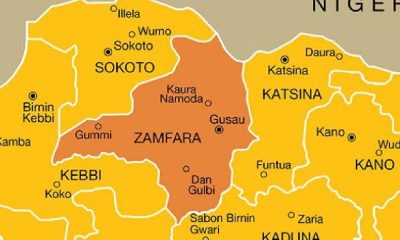
 News21 hours ago
News21 hours agoInsecurity! Bandits abduct 25 female wedding guests
-

 News21 hours ago
News21 hours agoTompolo Launches Door-to-Door Campaign for Tinubu’s 2027 Re-Election!
-

 News21 hours ago
News21 hours agoEzekwesili slams political establishment over harassment allegation, defends Natasha
-

 News8 hours ago
News8 hours agoFormer Plateau deputy governor is dead
-

 News15 hours ago
News15 hours agoINTERPOL uncovers 150 stolen vehicles from Canada in Nigeria, Gambia, other W.A. countries
-
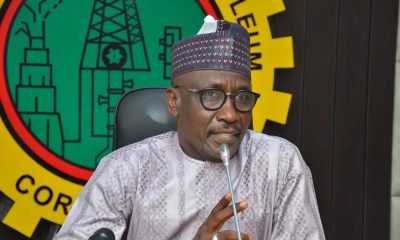
 News21 hours ago
News21 hours agoKyari breaks silence: “I’m not in EFCC custody, I served God, country, not corruption”


